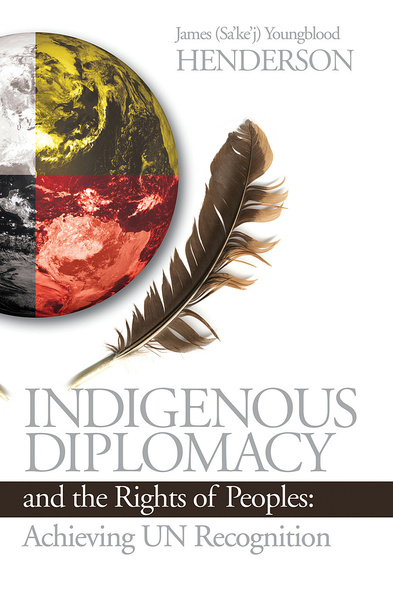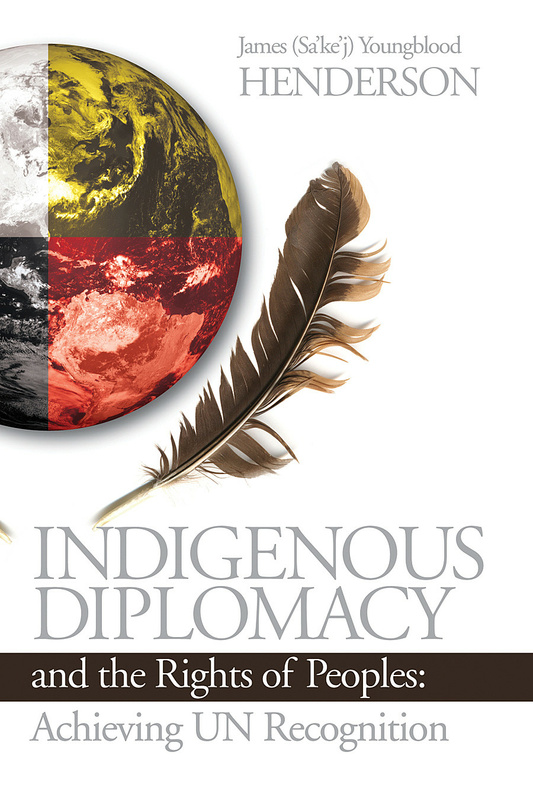
Indigenous Diplomacy and the Rights of Peoples
Achieving UN Recognition
Despite centuries of sustained attacks against their collective existence, Indigenous peoples represent over 5,000 languages and cultures in more than 70 nations on six continents. Most have retained social, cultural, economic, and political characteristics distinct from other segments of national populations. Yet recognition of their humanity and rights has been a struggle to achieve.
Based on personal experience, James (Sa’ke’j) Youngblood Henderson documents the generation-long struggle that led ultimately to the adoption of the Declaration of the Rights of Indigenous Peoples by the United Nations General Assembly. Henderson puts the Declaration and the struggles of Indigenous peoples in a wider context, outlining the rise of international law and how it was shaped by European ideas, the rise of the United Nations, and post-World War II agreements focusing on human rights.
Henderson analyzes the provisions of the Declaration and comments on the impact of other international agreements on Indigenous peoples. He concludes with his view of what must be done to give the Declaration its full force for Indigenous peoples around the world, and what it means for Canada. The full text of the Declaration and selected excerpts of other key international agreements are included.
Foreword
1 The Legacy of Empire
2 The Failure of Decolonization for the Indigenous Others
3 The Convergence of Indigenous Diplomacy
4 Communications with the UN Human Rights Committee
5 The UN Working Group on Indigenous Populations
6 Indigenous Diplomacy in other International Forums
7 The Indigenous Declaration in the Governments’ Working Group
8 The UN Declaration on the Rights of Indigenous Peoples
9 Implementation Quandaries
10 Being a Self-Determining Human
Notes
Appendices
Index
Appendices:
- UN Declaration on the Rights of Indigenous Peoples (2007)
- Draft UN Declaration on the Rights of Indigenous Peoples (1994-95)
- International Covenant on Civil and Political Rights (1966)
- International Covenant on Economic, Social and Cultural Rights (1966)
- Optional Protocol to the International Covenant on Civil and Political Rights (1966)
- International Labour Organisation Convention concerning Indigenous and Tribal Peoples in Independent Countries (ILO No. 169) (1989)
- UN Convention on Biological Diversity, including the Rio Declaration on the Environment (1982)
- UNESCO Declaration on Science and the Use of Scientific Knowledge (1999)
- Draft Principles and Guidelines for the protection of the Heritage of Indigenous People (2000)
- World Conference Against Racism, Racial Discrimination, Xenophobia and Related Intolerance, Program of Action (2001)






